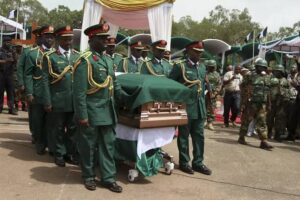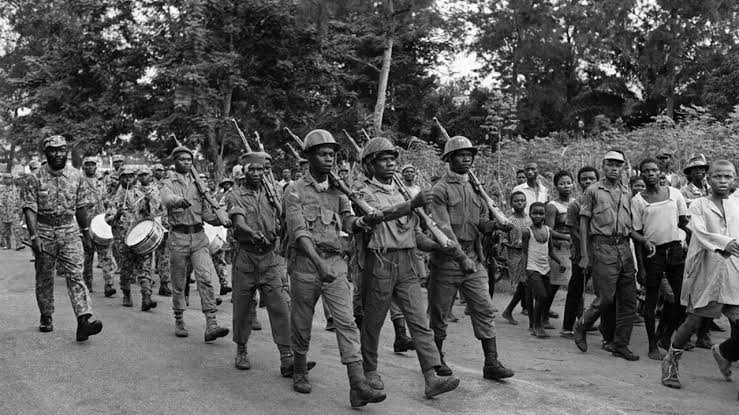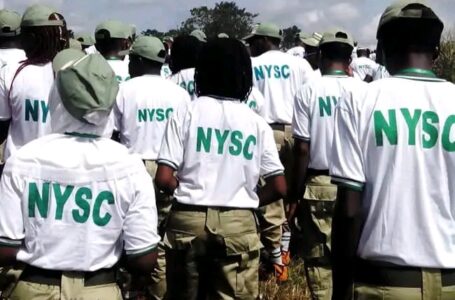Former US President Donald Trump Shot But Escapes Assassination Attempt
The Nigerian Civil War, generally regarded as the Biafran War, spanned from 6 July 1967 to 15 January 1970, marking a chaotic period in Nigeria’s history. The conflict erupted when the Republic of Biafra, led by Lieutenant Colonel Chukwuemeka Odumegwu Ojukwu, declared independence from Nigeria in response to political, economic, and ethnic tensions.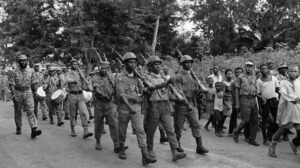
Under the leadership of General Yakubu Gowon, Nigeria found itself divided along ethnic lines, particularly between the Igbo-dominated southeastern region and the Hausa-Fulani-dominated northern government. The roots of the war trace back to the aftermath of Nigeria’s independence from British colonial rule in the early 1960s, which was fuelled by series of coups and the following anti-Igbo violence in the north.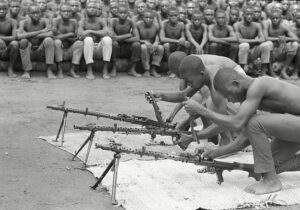
As soon as the war began, the Nigerian government’s military campaign immediately encircled Biafra, seizing key cities and imposing a blockade that resulted in severe famine and suffering among Biafran civilians.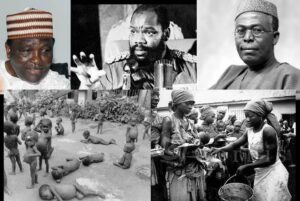
The war continued for close to three years, and the last blow was landed by the Nigerian army. In late 1969, the Nigerian forces, notably the 3rd Marine Commando Division under Colonel Olusegun Obasanjo, launched a final offensive. The Biafran enclave, already weakened by prolonged conflict and internal divisions, and Ojukwu’s exile started to crumble.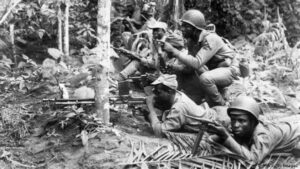
With all hopes seems lost, Biafra surrendered to General Gowon in January 1970, formally ending the three-year long war.
The Nigerian Civil War will forever remain a very pivotal and significant chapter in Nigerian history, which brought to light the complexities of Nigeria’s ethnic and nationalist aspirations amidst the struggle to create a unified national identity.